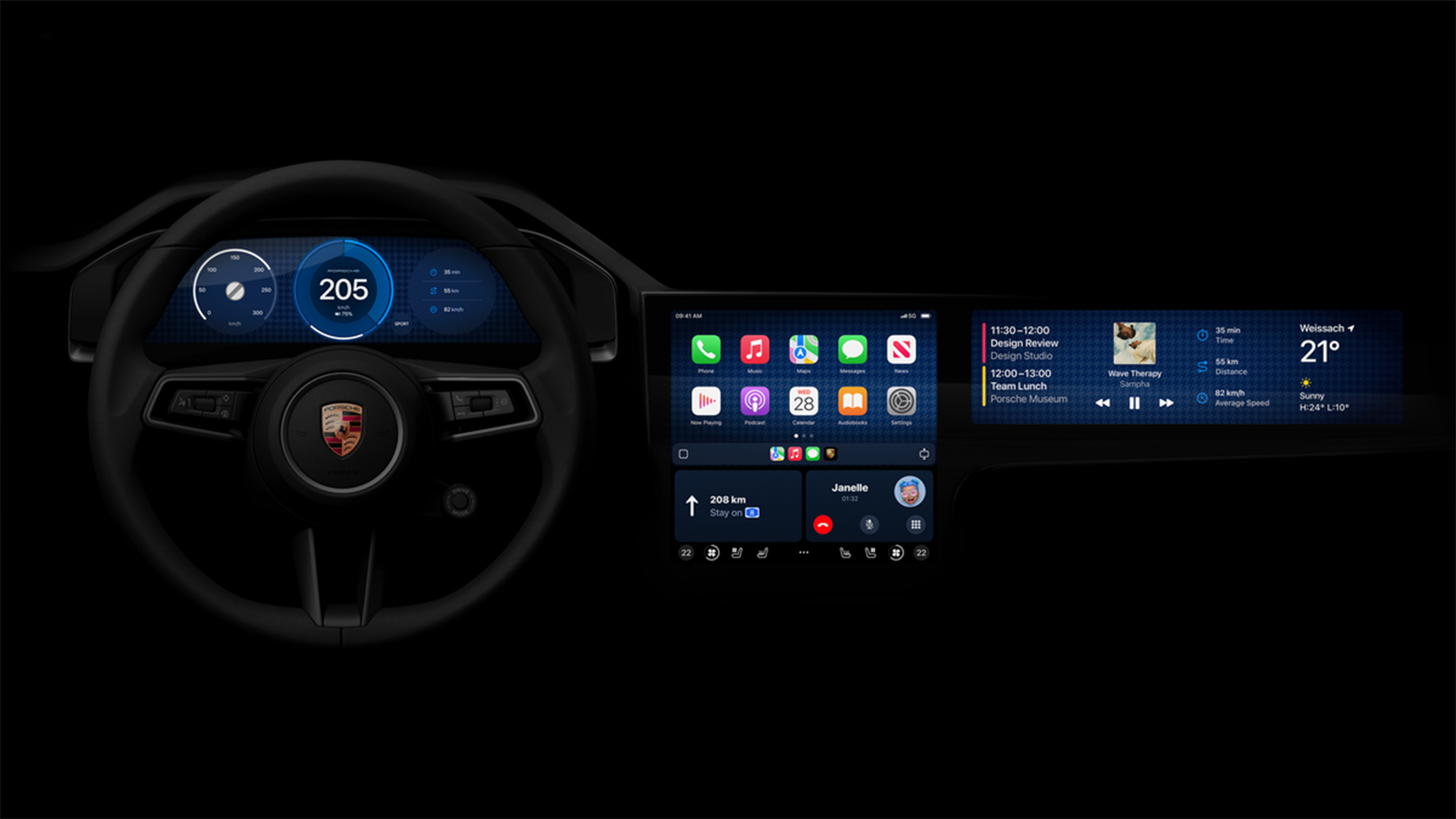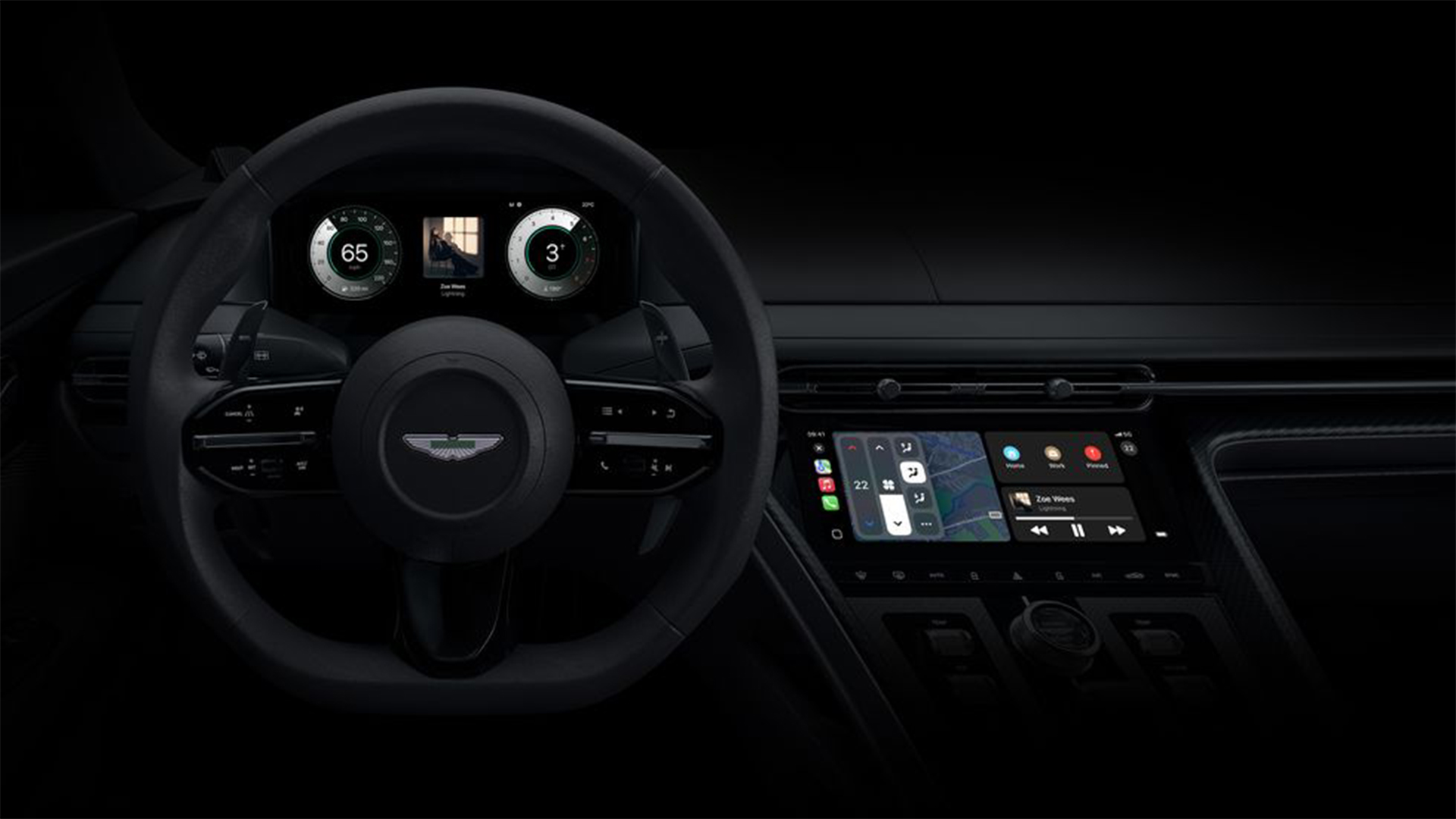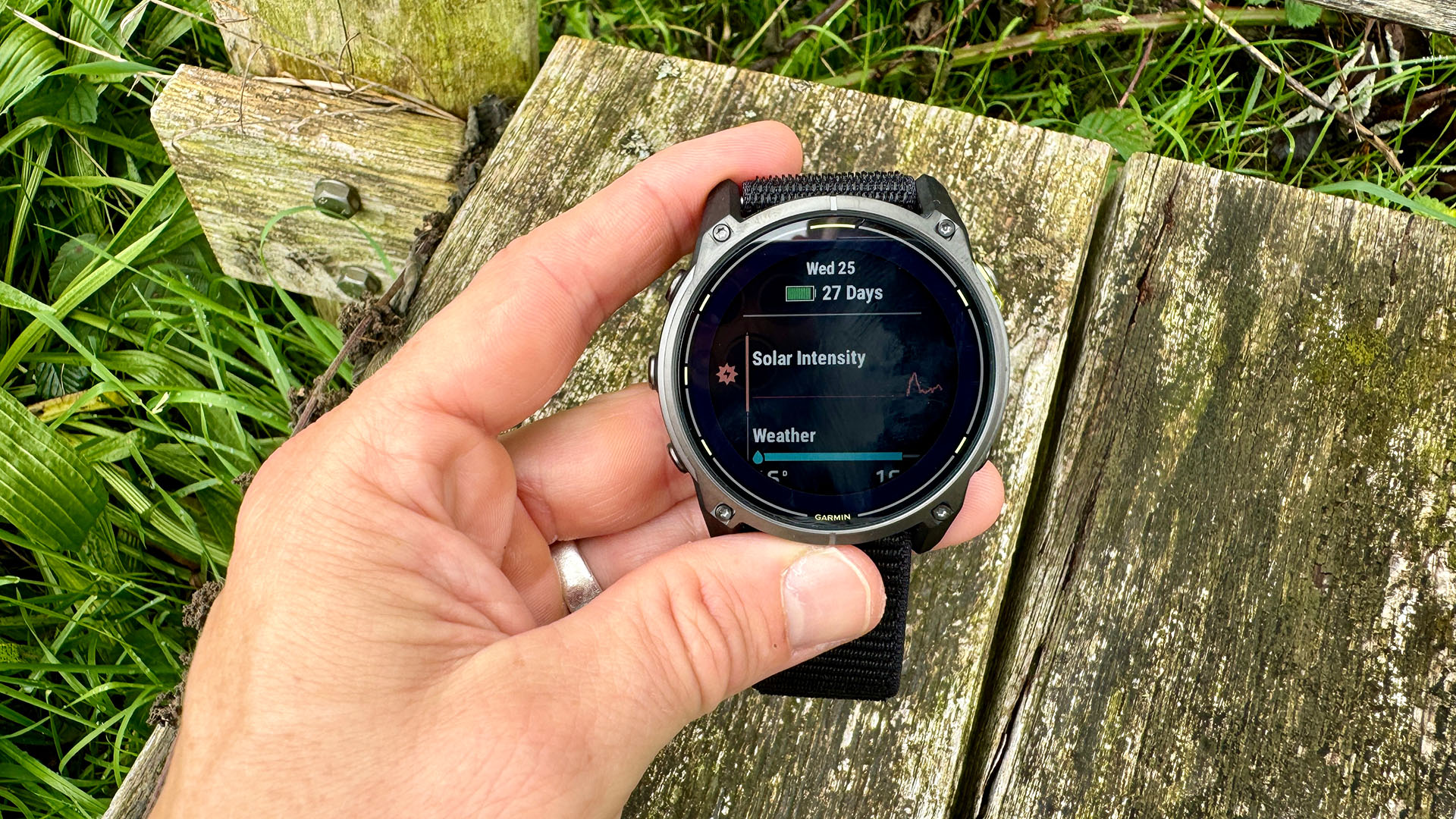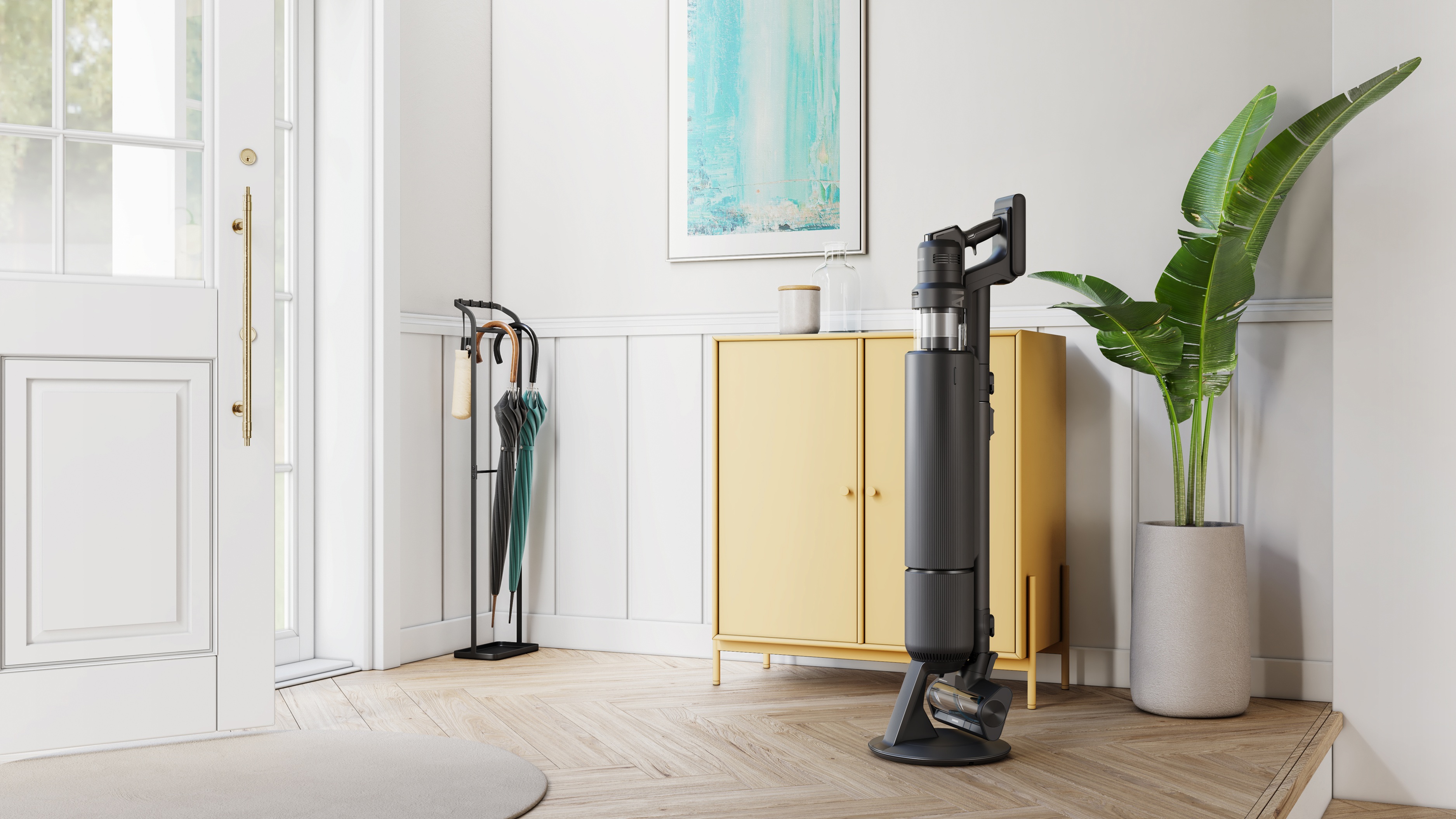

I love Apple CarPlay. When borrowing a car for review, I almost always connect my iPhone instead of using the manufacturer’s own infotainment system. I even paid to have CarPlay retrofitted to my own car and use it for every single journey, and can't wait to try the new version Apple just revealed.
The bold, new CarPlay was shown off by Apple in late-December with images of it running on dashboards of electric cars by Porsche (pictured above) and Aston Martin (below).
These show a system that spans every touch screen and display. No longer will CarPlay be restricted to a single screen; instead it’ll appear everywhere, from the infotainment screen, to the driver display behind the steering wheel and hopefully the head-up display projected onto the windscreen too.
It’ll be a comprehensive system, Apple’s images suggest, and I have no doubt it’ll be a slick, intuitive experience that far exceeds the software of even the most creative and deep-pocketed car manufacturers.
But I have a concern. I fear bringing CarPlay to every display – and especially to the instrument cluster – will strip away the car maker’s identity.
Porsche's new CarPlay interface is little more than a nod to the brand's iconic dashboards of old, but with three dials instead of the usual five, and the Aston speedometer shares only its colour with the brushed metal dials of an old Vantage. They both feel like half-baked attempts at skeuomorphism; not a charming facsimile evoking memories of a rose-tinted past, nor a bold attempt at something entirely new.

Car manufacturers had already set out on this course when they began swapping analogue dials for digital display, and now the updated CarPlay will accelerate this transition to homogenised dashboards that offer little to make one car stand out from another.
Sign up to the T3 newsletter for smarter living straight to your inbox
Get all the latest news, reviews, deals and buying guides on gorgeous tech, home and active products from the T3 experts
It won’t be long before instrument panels and infotainment displays look as alike as Android smartphones, devoid of character when in use and entirely blank when switched off. Children will no longer peer into the cockpits of exotic supercars in a bid to see what the speedometer reads to. That’s why Bugatti still fits the Chiron with an analogue speedometer, complete with a scale that reads all the way to an intoxicating 500 km/h.
This sense of identity is also why Bentley offers a rotating dashboard, which spins around to hide the touchscreen and replace it with analogue gauges when it isn’t needed. Bentley says this will help future proof its cars, giving owners an opportunity to hide the aged infotainment screen when parked on the manicured lawns of concours events decades from now. Those owners agree, with 70 percent ticking the rotating dashboard box when buying their new car.
Brand identity isn’t only lost by replacing the analogue dials and gauges with screens. Since Apple’s new software also includes cabin temperature controls, manufacturers will no longer be incentivised to design and produce those either.
Similarly, because CarPlay works best with touch inputs we’ll see cars lose their buttons and knobs. Every car will be controlled in the same way, with broadly the same user interface. Perhaps that’s why BMW isn't yet among the list of manufacturers gearing up to use the new CarPlay, since that could mean the death of its own iDrive system and the instantly recognisable hardware used to control it.
For a great many cars – affordable cars bought by the masses for their value and efficiency, not their history, character or brand value – the new CarPlay could be a revelation; a standardisation of interior controls that will make every vehicle as familiar as any other. But it could also take us down a road where manufacturers with century-old identities are forced to design interiors that all look, feel and function the same. Like so much of the Apple ecosystem, it’ll be a case of Apple’s way or no way.
As much as I want to be greeted by the full CarPlay experience when I jump into an unfamiliar rental car at the airport, with all of it controls where I expect them to be, I fear luxury car companies who depend on brand identity will lose a key battlefield on which to compete for customers.
They can add their own digitised logos and fonts, in the same way Hermès slaps a set of branded dials on the Apple Watch. But, as nice as those smartwatches are, the hardware still comes from the same Chinese factory as the regular model. They are not Hermès watches.
Auto brands have already seen their identity eroded by identikit electric drivetrains that make a Hyundai perform in much the same way as a Porsche. Once their interiors are homogenised by the same CarPlay experience on every screen, with no physical controls in sight, they'll have even less to truly call their own.
Alistair is a freelance automotive and technology journalist. He has bylines on esteemed sites such as the BBC, Forbes, TechRadar, and of best of all, T3, where he covers topics ranging from classic cars and men's lifestyle, to smart home technology, phones, electric cars, autonomy, Swiss watches, and much more besides. He is an experienced journalist, writing news, features, interviews and product reviews. If that didn't make him busy enough, he is also the co-host of the AutoChat podcast.
-
 Garmin’s on a mission to update your wrist into oblivion as 100+ tweaks land on Fenix and Enduro watches
Garmin’s on a mission to update your wrist into oblivion as 100+ tweaks land on Fenix and Enduro watchesThe latest beta update looks comprehensive
By Matt Kollat Published
-
 5 reasons you should be excited about the brand new Samsung Bespoke AI Jet Ultra
5 reasons you should be excited about the brand new Samsung Bespoke AI Jet UltraNot sure if it’s obvious... but I can't wait to try it
By Lizzie Wilmot Published